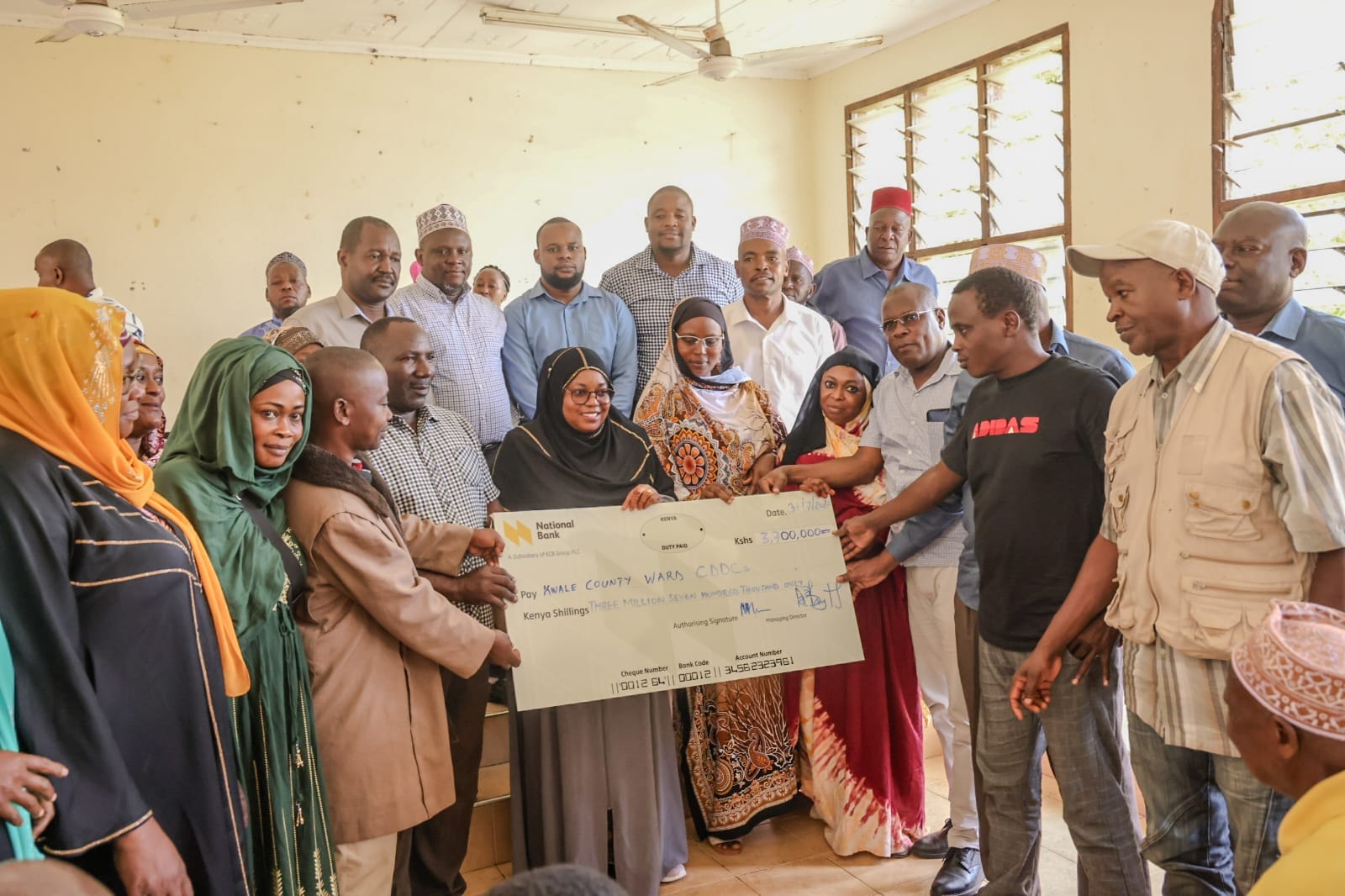

The coastal county of Kwale is actively working towards revitalising the agricultural sector through value addition initiatives by building farmers’ capacities to enhance value chains.
The initiatives include establishing special agro-industrial processing zones, improved farming practices, climate smart agriculture, promoting mechanisation by deploying tractors and other machinery to enhance productivity and market access for agricultural products.
Governor Fatuma Achani says the new efforts are aimed at boosting food production, creating economic opportunities especially in rural areas and enhancing the overall quality of life for residents.
She says the devolved unit is aware of the potential of agriculture as a powerful economic driver and is keen to establish agribusiness ecosystems throughout the coastal county with emphasis on adding value to raw agricultural products.
She said smallholder farmers in Kwale are slowly adapting to climate-smart agriculture practices to improve productivity, enhance resilience to climate variability, reduce greenhouse gas emissions and store carbon.
Climate-smart agriculture is an integrated approach to managing landscapes such as cropland and livestock that address the twin challenges of food security and climate change.
Confronted with the reality of erratic rainfall patterns and low yields, Kwale farmers are ‘opening their arms’ for climate-smart agriculture practices in the hope of increasing crop yields and farm income.
“We are seeking to reposition agriculture as a key driver for socioeconomic transformation, job creation and diversification which ensures a steady supply of food throughout the year,” she said.
Achani said the devolved unit is
turning its focus on innovative farming techniques, value chain optimisation,
strengthening small-scale farmers' resilience and strategic investments in
climate-smart agriculture, which is more resilient to climate shocks.
She said climate-smart agriculture practices like improved water management, drought-resistant crops, and diversified farming systems, can help farmers mitigate the impacts of climate change, increase productivity and improve their livelihoods.
“Through these initiatives the
devolved government aims to improve food security, enhance the livelihoods of
small-scale farmers and create a more diversified and resilient agricultural
sector,” the governor said.
She was speaking in Tiwi ward, Matuga subcounty, during the issuance of Sh3.7 million cheque to community-driven development committees through the National Agricultural Value Chain Development Project (NAVCDP).
The NAVCDP is implemented by the Ministry of Agriculture and Livestock Development and funded by the World Bank. It is a five-year project, which started in September 2022, and runs until December 2027.
Achani said funds aim at supporting the NAVCDP project implementation at the grassroots level, through increasing market participation and value addition to farmers.
The governor added that the funding
is aimed at supporting practical farmer-driven demonstration projects that
showcase modern and climate-smart agricultural techniques in key value chains
across the county.
Achani, who was accompanied by county executives Roman Shera (agriculture, livestock and fisheries) and Michael Mutua (trade and tourism), said the devolved government would support the national governments and international partners efforts to revamp the agricultural sector.
“Kwale will continue to collaborate with the national government, development partners and other stakeholders in enhancing the livelihoods of our people,” she said.
She said the new investment will empower local smallholder farmers with the knowledge and skills they need to improve yields, as well as reduce post-harvest losses and increase household incomes.
Shera said Kwale is working to revamp the agricultural sector by focusing on value addition and agribusiness.
He said the new efforts involve initiatives to enhance the quality and marketability of agricultural commodities, create more value-added products and promote sustainable practices.
“Our goal is to improve smallholder farmer incomes, boost food and nutrition security, and foster socio-economic growth.”
He added that the county through the department of agriculture is spearheading initiatives like establishing agribusiness hubs, promoting agro-processing industries and creating linkages between farmers and markets.
The goal, Shera said, is to enhance food security, create jobs and foster economic growth within the agricultural sector.












